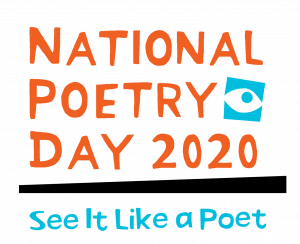 Curriculum Centre staff – including the original creator of this blog – have long and deep links, both familial and professional, with the South Pacific. Today’s poem is by William Alfred Nu’utupu Giles, a Samoan-American poet from Hawai’i.
Curriculum Centre staff – including the original creator of this blog – have long and deep links, both familial and professional, with the South Pacific. Today’s poem is by William Alfred Nu’utupu Giles, a Samoan-American poet from Hawai’i.
There is a large Islander diaspora living in Hawai’i, in mainland America, in Australia and in Aotearoa/New Zealand. Just as one example: while about 100,000 Tongans live in Tonga, there are about 60,000 Tongans living in Aotearoa/New Zealand. Islanders value their oral tradition hugely, yet it can be lost in the course of one generation, as is so keenly regretted in Prescribed Fire.
This poem is perhaps a little more challenging to read than earlier choices, but the central image is straightforward and powerful.
Prescribed Fire
as some of the tallest trees in the world
redwoods can grow to over 350 feet above the earth
yet their roots, on average only travel 10 feet into it
in isolation, it should be physically impossible for them to stand
however, these enormous trees do not grow in isolation
their roots, each only a single inch thick
wraps around the roots of its neighbors
a stubborn foundation of brown fingers
clasps an underground stand
and grows
my family is a group of redwoods
that sought god instead of ground
when my mother immigrated to the united states from Samoa
she taught none of her children how to speak our native tongue
now 26 years later
I cannot feel the hands
of the land I come from
how do you stand when your roots have been burned away
today I am a tree toppling over
a man cut off at the knees
stuck between a loved language lost
and a sky still out of reach
and that is the true legacy of world war II in the Pacific
a generation of Islander and Asian immigrants who learned
that their foreign accents and different skin
could mean your family in internment camps
learned their place in this society
could only be bought with blood in uniform
they learned their citizenship papers
would only be traded for their severed tongues
it is true
that the branches of a tree may spread no wider than its roots
but when parent countries
are just another word for poverty
when you are made to choose
between putting your children in culture or clothing
which blood would you want?
this is how redwoods fall
they forget the only reason
they are able to stand and defy common logic
is how well they hold one another
in Hawai’i
an immigrant mecca
where so many of us try to stand with a lost past
we have old weeping banyan trees who also came from across the sea
these banyans start from seeds that are blown to other canopies
and without pity or regard for past
they create their own way to the ground
sprouting aerial roots that crawl to the earth
and make a home wherever they find it
in Polynesia,
we have always learned from the earth around us
so now I do not lament my lack of roots
instead, I grow them myself
so every day I am a windblown seed
I am ‘foreign’ accents and different skin
every day I fall towards the earth and am reborn in dirt
I am blood in uniform and severed tongue
every day, I am the blood I want
every day, I look around
hold on tight to those I love
and I grow
into an extended
family
tree
William Alfred Nu’utupu Giles
Valuing his oral culture so highly, Will Nu’utupu Giles works as the workshop co-ordinator for Pacific Tongues, a non-profit organisation for writers, spoken word performers, educators and students, on Oahu, Hawai’i, and he is a poetry slam champion. Watch him in action performing his poem Deodorant.
Contemporary Pacific Islanders are engaged in a range of written poetry, performance poetry, fiction and non-fiction. This literature has circulated within and beyond the Pacific, yet is hard to seek out, and remains marginalised in studies of global literature. The Poetry Foundation (US equivalent of our Poetry Society) has a well-presented online starting point, especially for poets coming from the American sphere of influence in the Pacific (Hawai’i, American Samoa, Guam etc) – see this page for a good overview.
